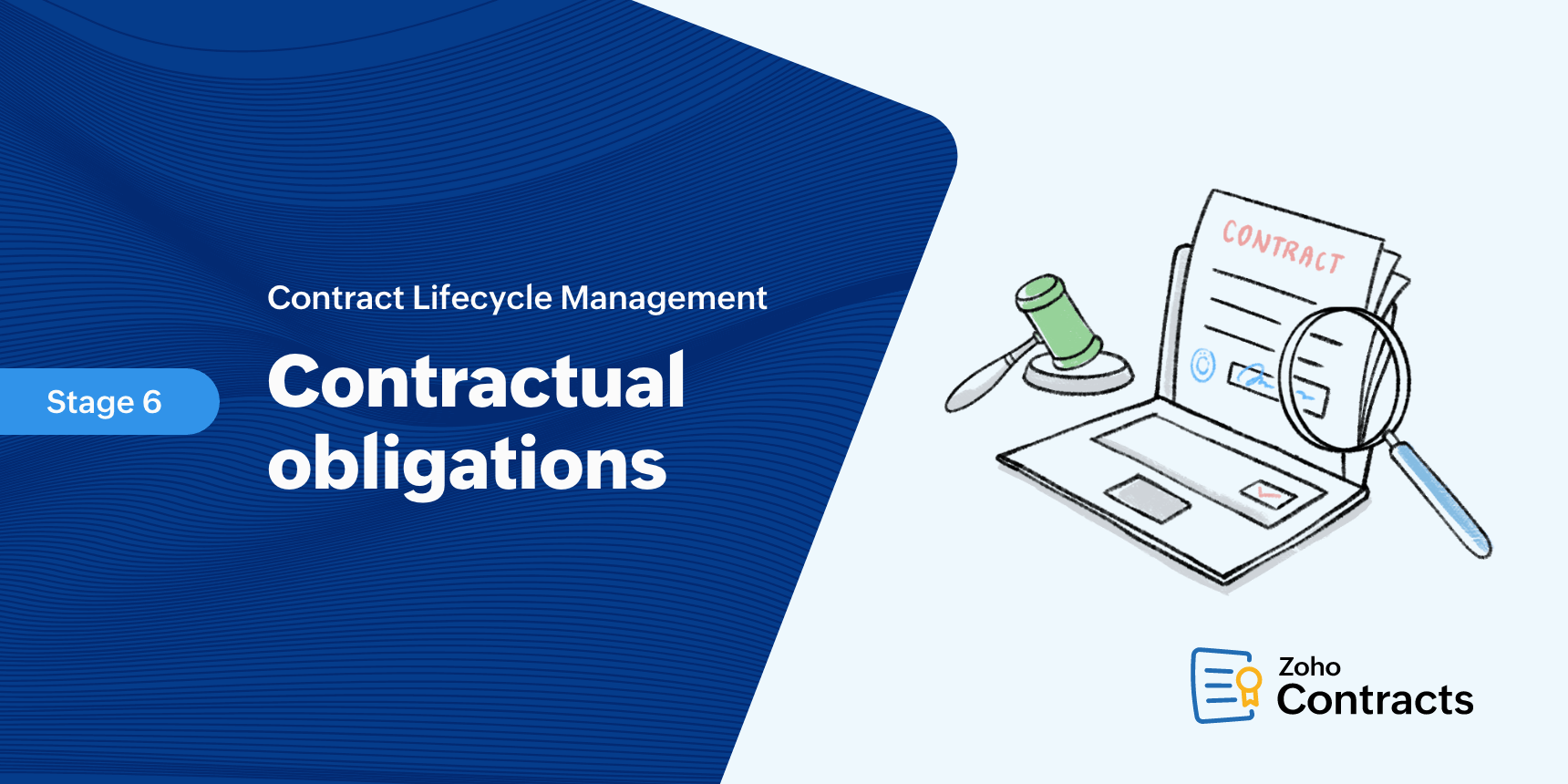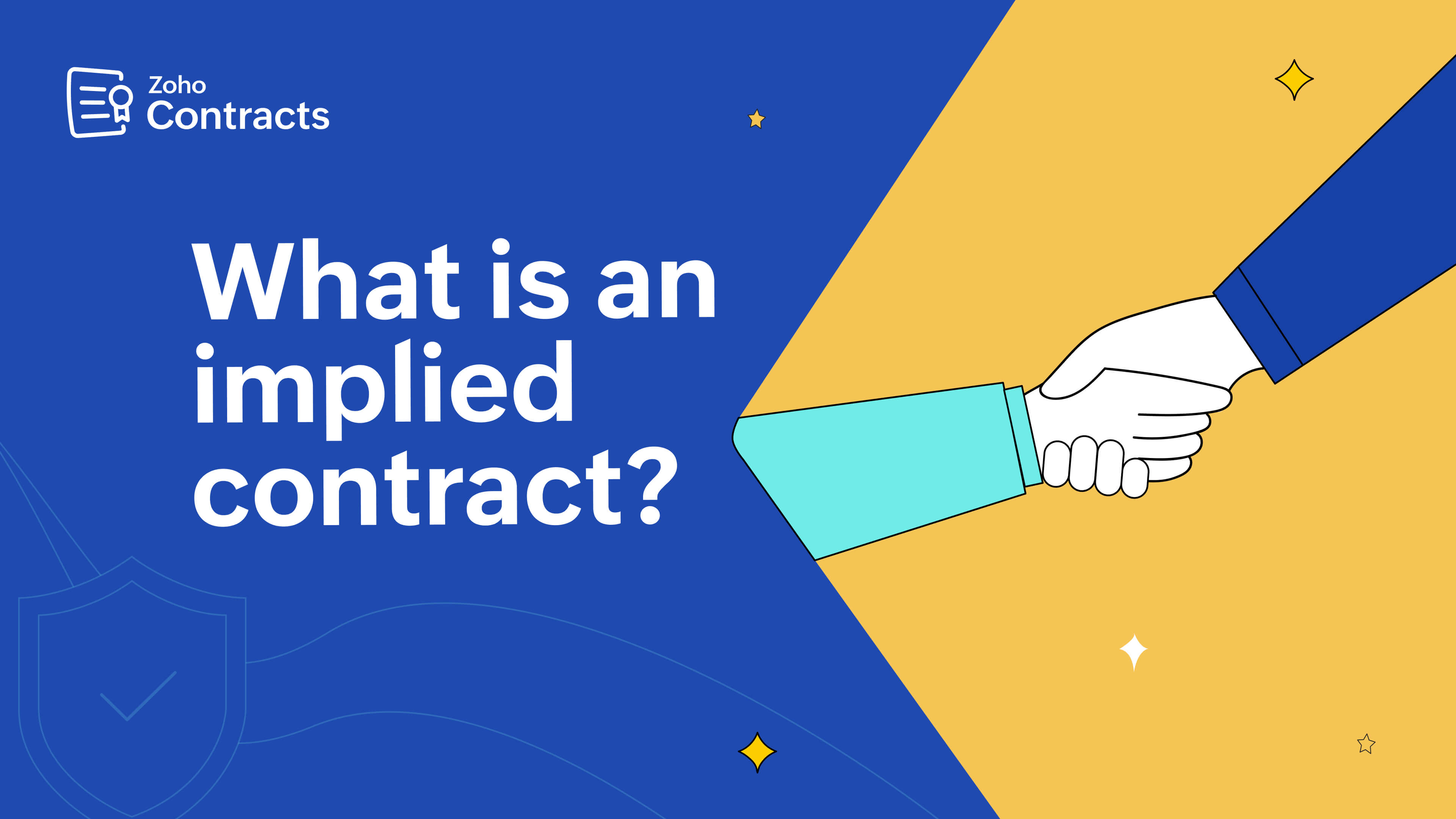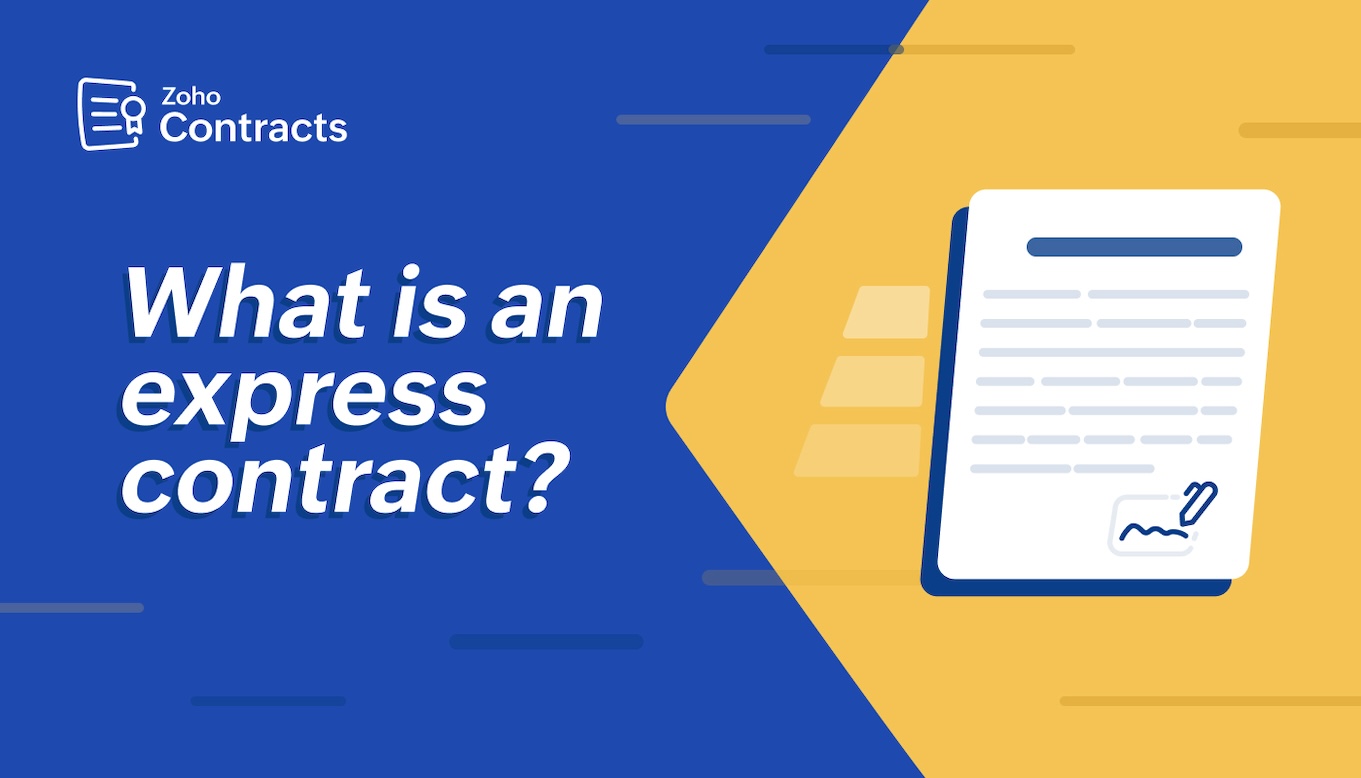- HOME
- Contract Management
- Contractual obligations: Stage 6 of contract lifecycle management
Contractual obligations: Stage 6 of contract lifecycle management
- Last Updated : November 9, 2023
- 1.5K Views
- 4 Min Read

Welcome to our blog series on contract lifecycle management (CLM) stages.
Contract management refers to the process of systematically and efficiently managing the entire lifecycle of a contract. A typical contract lifecycle has seven stages that commence when a contract request is raised and end when the agreement is terminated.
Below, we’ve provided links to our previous blog posts explaining the first three stages of the contract lifecycle:
Contract negotiation - Stage 3
Contract post execution - Stage 5
In this article, let's look at the sixth stage in the contract lifecycle: Obligation management.
What are contractual obligations?
When parties sign a contract, the agreement establishes specific rights and obligations to which each party must adhere. A contractual obligation refers to a party's legal duty to fulfill the signed contract's terms and conditions.
Types of contractual obligations
Contractual obligations can be broadly classified as task and non-task obligations.
Task obligations
Task obligations refer to action items that can be one-time-only or recurring. Some examples of task obligations include:
Delivery: This obligation refers to the delivery of goods or services based on the terms discussed in the contract. This could be a one-time or a recurring obligation.
Payment: This obligation instructs party A to pay for goods and services the other party provides. Payments can be one-time or recurring based on the signed agreement.
Non-task obligations
Non-task obligations refer to the general principles that the contracting parties are obligated to follow. Some examples include:
Confidentiality: This obligation requires parties to keep certain information confidential, such as trade secrets, customer lists, or other proprietary information.
Non-compete: This type of obligation prevents one party from competing with the other party in a particular market or industry for a specified period.
The importance of effective contractual obligations management
Improved control: Effectively managing contractual obligations provides better control in the contracting process by establishing clear expectations for all parties involved in an agreement. This way, each party knows what it's responsible for.
Reduced risk of disputes: Because obligations are established clearly, the chances of potential disagreements and misunderstandings between parties are reduced.
Protecting the interests of parties: Managing obligations effectively is essential to protect the rights and interests of all parties involved in the agreement because obligations are legally binding and can result in significant risk to a business if they're not fulfilled.
Building trust and confidence: As obligations are clearly laid out, reducing the chances of disputes and protecting the interests of all parties, it builds trust among the parties, helping form strong business relationships.
What happens if contractual obligations are not fulfilled?
Failure to fulfill obligations can have a significant impact on a business. These include:
Legal action: If a party doesn't meet its obligations according to the contract, its counterparties can resort to legal action. This can result in costly litigation and may lead to a court-ordered remedy.
Financial repercussions: Parties may be required to pay financial penalties in case of unfulfilled obligations according to certain contract provisions. They may also face a financial setback due to the cost of litigation and damages if the counterparties press legal charges.
Reputational damage: Unfulfilled obligations will dent a company's reputation in the business community. As word spreads, it can also become challenging to establish future business relationships.
How modern CLM solutions help businesses manage the obligation process
Granular obligations tracking: CLM software allows you to extract, assign, and track obligations from the contract document. It also enables stakeholders to view and update their status from the software.
Central repository and analytics: CLM software can provide a central repository for all contracts, making it easier for organizations to manage their contracts, track obligations, and ensure compliance. Because all data is centrally stored, the analytical capabilities of CLM systems can help businesses glean strategic insights into their contractual obligations and make informed decisions about their contracts.
Approval workflows: With approval workflows, stakeholders are aware of their obligations and potential risks and opportunities early on. This ensures that everyone is on the same page regarding contractual obligations.
Alerts and reminders: Once obligations are assigned, CLM software sends notifications and reminders for obligations coming due, ensuring that no obligation is missed.
Wrapping up
In the next blog post in this series, we'll discuss how CLM software's analytical and reporting capabilities can offer you strategic insights into your contracting process.
If you want to experience the features of Zoho Contracts, such as its extensive obligations module, sign up for a free trial or request a demo today.
 Akshaya Ganesh
Akshaya GaneshA journalist turned marketer who loves to travel.


